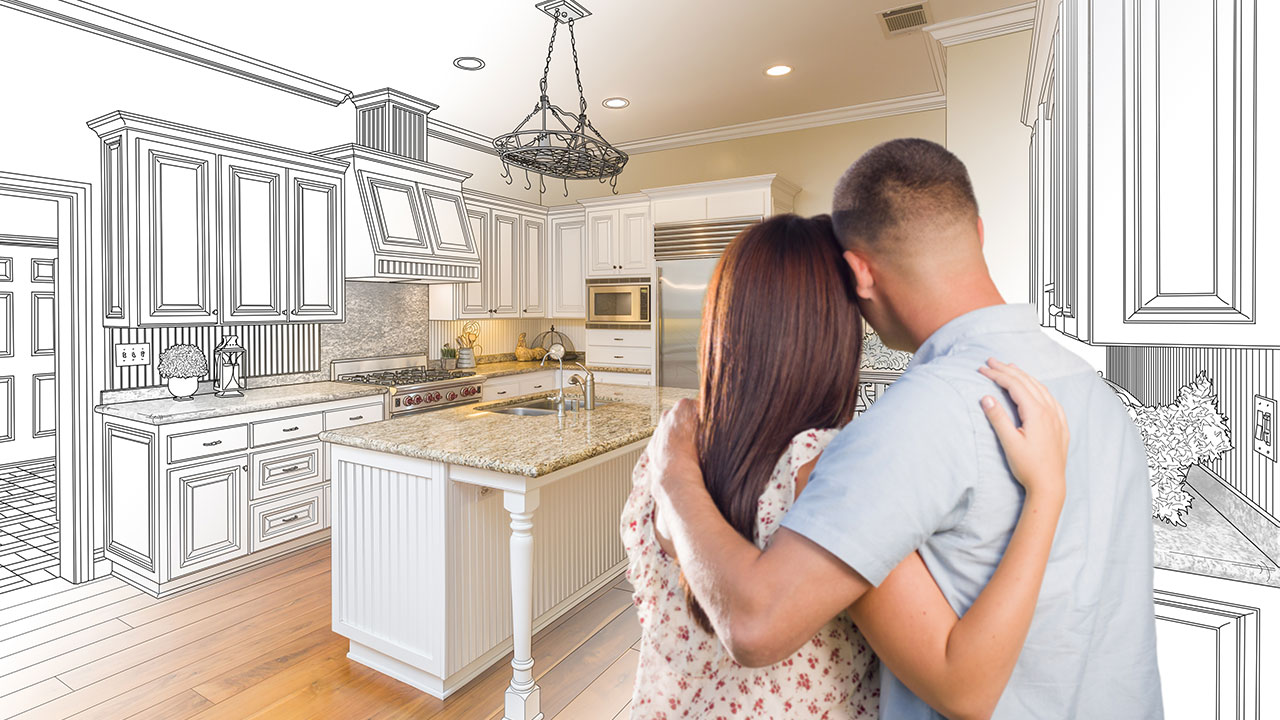
Why Buy?
So, what is it about owning a home that so many of us find attractive? The first answer that comes to mind for most of us is the financial advantages. As a home owner, you can build equity in your property over time, and you can benefit from the substantial tax advantage of the deductibility of the interest portion of your mortgage payment. In addition, upgrades and improvements to your home can add value, as well as add to your comfort and enjoyment for years to come.
That said, the appeal of homeownership can be as much about the intangible benefits as about the cold hard facts of investment potential and tax savings. Your home is, well, yours, a means of expressing your personal taste and satisfying a fundamental need for shelter and security for yourself and your family. It also represents a solid connection to community, and instills a sense of place and participation in community life.
Getting Started
The most difficult part of choosing your first home is simply getting started. It is a complex process full of uncertainties and unknowns that can seem overwhelming at times. If you’ve ever felt that way, don’t worry, those feelings are part of the process too.
The best way to lead you on the path to the door of your first home is working with a Pointe Mark Realty agent.
Tips To Help You Keep On Track
Know What you Need – It’s easy to get distracted and lose sight of your basic needs once you’re in the middle of searching for your first home. Early in the process, it’s helpful to list your basic needs; minimum square footage and number of bedrooms and bathrooms, as well as proximity to schools, shopping – whatever you think you must have in your new home.
List Your ‘Nice to Haves’ – Now that you’ve got a firm handle on the ‘must haves,’ make a second list of the ‘nice to haves;’ things like a bigger garage, extra bedroom, in-ground pool, etc. Between these two lists, you’re already off to a great start on zeroing in on the home that’s right for you.
How Much Can You Afford? – In general, the answer to this question is a function of how big a down payment you can put down and how much you are able to borrow, based on your credit score and other factors as determined by a lender. There are many loan calculators on the Internet to help you determine what you can afford; none of these is a substitute for discussing your needs with a reputable lender. A common rule of thumb is that your annual mortgage payments, taxes and homeowner’s insurance should not exceed 28% of your gross annual income.
Note: In addition to a down payment, you should keep up to 3-5% of your home’s purchase price in reserve to cover closing costs and contingencies.
Check Your Credit – … and your debt. This would be a great time to obtain a copy of your credit report from a credit service bureau and make sure that your credit history is in order. Most lenders breathe easier when your total monthly debt service from all sources – including homeowner’s insurance, property taxes and your mortgage payment – will be below 40% of your gross income.
Note: Cancel credit cards you never use; the credit line, even if unused, can raise a flag with lenders.
Research Your Favorite Neighborhoods – The Internet makes it a snap to research economic, demographic and a whole host of other data about specific communities and neighborhoods by researching the internet.
Find out What’s Available – Searching online for homes in the area of your choice will return online listings, virtual tours, and an endless array of photographs, aerial views and maps of homes and the surrounding area. Check the listings against your list of ‘must haves’ and ‘nice to haves’ and decide whether prices are in your ballpark.
Viewing the properties – Once you’ve settled on the type of home and neighborhood you’re looking for, it’s time to start looking at properties. We believe that using the services of a real estate agent is the best way to successfully get you through the emotional and often complex process of choosing and purchasing your home.
A real estate agent will listen to your needs, and show you homes that fit your particular desires; homes that may even be new to the market and whose listings are not yet generally available online. In addition, a real estate professional is dedicated to taking care of the seemingly endless details that buying a home entails and keeping the process on track to a successful conclusion at the closing table.
![]()
![]()
![]() CA DRE License # 01841286
CA DRE License # 01841286
